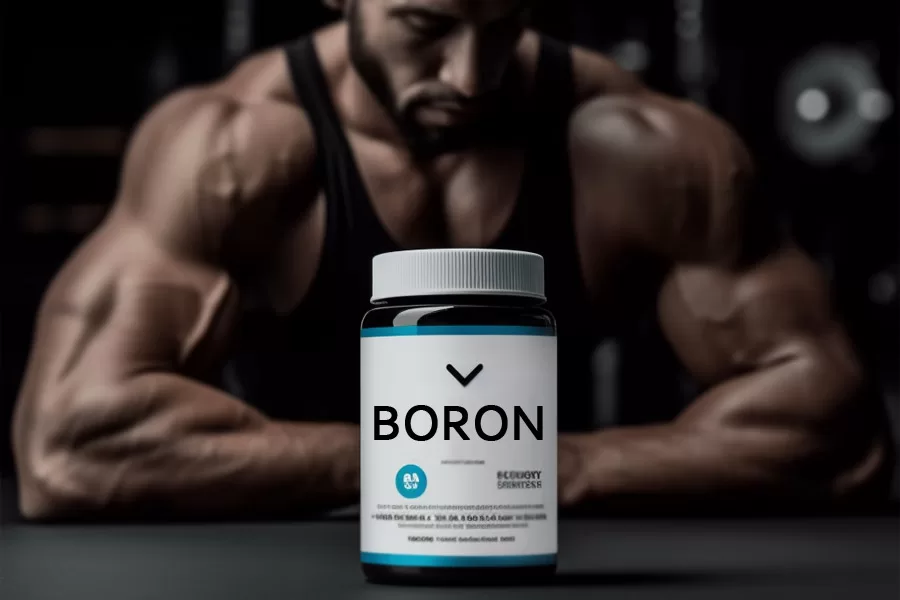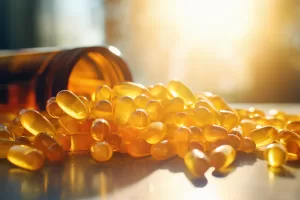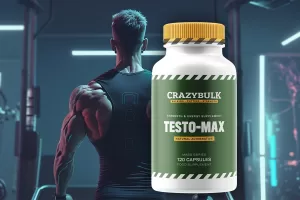Boron is considered a non-essential nutrient some of which we can easily consume with the simplest diet. Food and Nutrition Board did not even have enough data to develop an RDA (Recommended Dietary Allowance) for boron, and the mineral often goes neglected when individuals think about their nutrition plan. However, there is promising evidence of boron benefits for men.
In a nutshell, the answer to our headline question is “It is possible”. One can include boron-rich products in their diet or take a boron supplement for testosterone (T) levels and see a satisfactory result.
How Boron Influences Testosterone Levels
There are several studies regarding the connection between the mineral and the T, and we have to warn you that their results might be a bit controversial. First of all, they are quite small and often included a dozen participants or two. Even affirmative data from such research is not enough to guarantee the effect of boron on testosterone levels. There were also two studies with athletic volunteers. In the first trial, athletes took boron as well as a group of sedentary participants but demonstrated much fewer changes in T levels than less fit patients. In the second, athletes were also given boron there was a control group taking a placebo. The results of the two were quite comparable. Perhaps, this means that boron is less effective for those who boosted their T production through workouts—we would need more data to draw such conclusions.
At the same time, it is unreasonable to ignore results that were positive because there was a visible effect after a week of boron supplementation, and the mechanism of action could be determined and explained.
Reduction of Sex Hormone-Binding Globulin
Six hours of supplementation of 10 mg of boron has shown a significant decrease in SHBG. SHBG stands for sex hormone-binding globulin: it is a protein naturally present in the blood. It binds molecules of testosterone making them biounavailable because the hormone stays in blood vessels. SHBG levels typically increase in aging men which partly explains why male patients have lower testosterone levels in comparison with their younger selves.
By reducing blood levels of SHBG, boron increases the level of free testosterone (FT). Male volunteers in the study with a week of boron supplementation demonstrated FT level improvement from an average of 11.83 pg/mL to 15.18 pg/mL.
Vitamin D and Magnesium enhancement
Besides the effect of boron on free testosterone, it can improve the absorption and bioavailability of vitamin D and magnesium. There was even a suggestion that boron may improve the results of vitamin D supplementation in non-responsive patients. And both nutrients have a significant effect on testosterone.
Cholecalciferol (it is another name for vitamin D) is essential for the normal functioning of the immune and reproductive systems of the body. There is an interesting fact that deficiencies of cholecalciferol and testosterone have similar symptoms: fatigue, depressed mood, osteoporosis, and muscle ache. Another fact is that vitamin D supplementation was proven to reduce testosterone deficiency.
And magnesium is considered a macromineral which means we need comparatively large amounts of it to be healthy. It is necessary for a lot of metabolic processes, improves cardiovascular health, and makes us less prone to stress. Less stress means less cortisol—the main stress hormone, high levels of which inhibit testosterone production.
What is Testosterone
Testosterone is a hormone especially significant for AMAB people although it is present and plays a part in female bodies as well. In fact, the difference of importance determined T classification—it is considered an androgen, a male sex hormone.
In the male organism, T is mainly produced in Leydig cells — testicular interstitial cells. They get triggered by luteinizing hormone (LH) to produce and release testosterone. In turn, LH is produced by the pituitary gland after its stimulation by gonadotropin-releasing hormone (GnRH) from the hypothalamus.
Role of testosterone
In AMAB persons, testosterone is vital for reproductive functions, including sex drive, erection, and sperm production. It also is necessary for bone strength, red cell production in bone marrow, proper development during puberty, metabolic processes (e.g. fat burning and muscle growth), general well-being, good energy levels, and optimistic mood.
Health effects
When testosterone levels drop, the condition is called testosterone deficiency (TD). It is devastating for health, self-esteem, and quality of life. Main TD symptoms are:
- Low libido;
- Erectile dysfunction;
- Loss of pubic and armpit hair;
- Azoospermia (low sperm count);
- Shrinking testicles;
- Hot flashes.
The following signs may or may not be TD-related:
- Mood swings, depressive states;
- Growing fat percentage, fat becomes harder to burn;
- Getting fatigued fast or being constantly tired;
- Mental focus and memory get worse;
- Muscle mass decreases and/or becomes harder to gain.
What is Boron
Boron is a trace mineral that can be consumed with food or a supplement. Products most rich with boron are fruit, especially dried (prune and raisins), tubers, and legumes. An average modern person who is not very concerned with their diet likely gets most of their boron with coffee, apples, beans, and potatoes, as those are popular for many dishes and beverages.
In natural edibles, boron is present mostly in the form of inorganic salt (borate) or mono/di-sugar-borate ester, such as calcium fructoborate. During digestion, most of it is hydrolyzed to boric acid.
Because we consume enough boron with food to avoid its deficiency, there was never any specific research on recommended boron intake. According to WHO, the safe amount of boron acceptable to be taken daily varies from 1 to 13 mg per day. For example, one medium apple contains 0.66 mg of boron, and 1.5 oz of raisins will supply you with almost 1 mg.
| Source of Boron | Boron Content |
|---|---|
| Medium Apple | 0.66 mg |
| 1.5 oz of Raisins | Approx. 1 mg |
| Coffee (varies by cup) | Varies |
| Beans (varies by serving) | Varies |
| Potatoes (varies by serving) | Varies |
| Recommended Daily Intake (WHO) | 1 to 13 mg |
Benefits of Boron
Boron certainly does not get as much attention as calcium or magnesium in terms of supplementation, but its benefits are not limited to the mere effect on testosterone. Let us see what other good work can boron do in the body!
Bone health
We mentioned that both T and cholecalciferol are important for bone strength. Vitamin D helps us absorb calcium which is a main bone-building material. And testosterone is valuable to maintain good bone density and reduce the risk of osteoporosis and fractures. Moreover, studies of boron supplementation revealed that patients who suffered from osteoarthritis (a degenerative joint disease when joints start to break down and connected bones deform) have less pain and inflammation.
Mental function
In research, low dietary boron was associated with poor brain performance. In comparison with patients who consumed more of these minerals, participants with low intake levels demonstrated poorer manual dexterity, short and long-term memory, eye-hand coordination, attention, and perception. Also, inflammatory processes often are found in patients with mental decline, and boron decreases inflammation.
Prevention of certain diseases
There is preliminary data that sufficient boron intake can help reduce the risk of cancer. In particular, the studies considered prostate cancer in men and lung and cervical cancer in women. However, the data received from those studies is limited and requires more research to determine if boron can be used for cancer prevention and treatment.
Boron supplementation
To avoid changes in your nutrition and be sure about your daily boron intake, you make opt for a supplement. It is best to choose those products that have an organic form of the mineral as those are known to be easier absorbed in the body and more bioavailable.
Recommended dosage
In studies that reported beneficial results, volunteers received 6 to 10 mg of boron. Consider that the maximum safe amount estimated by WHO is 13 mg, and you still get some with food. If you are wondering about the best boron dosage for testosterone, we recommend stopping at 6 mg which provided a noticeable effect after a week of supplementation.
Possible side effects
Too much boron is not healthy for you. If consuming too much, one can experience GI disorders, nausea, vomiting, diarrhea, headache, etc. The toxic amount can vary depending on individual sensitivity, body mass, etc. If you began to experience any negative symptoms after you started boron supplementation, we advise you to stop taking boron and consult a doctor. You should also consult a doctor before starting boron if you have some undergoing health conditions or take other medications to avoid medical interactions and health deterioration.
Summary
Scientific evidence regarding the effect of boron on testosterone levels is mixed but it can be potentially beneficial in managing TD. Boron can be ingested from foods, beverages, or supplements.
FAQ
How much boron is needed to increase testosterone?
Trials with positive results used a minimum dose of 6 mg.
What form of boron is best for testosterone?
Organic compounds are usually the most bioavailable. For example, boron citrate for testosterone can be more beneficial than inorganic borate.
Does boron increase DHT?
Yes, testosterone converts to DHT, and boron increases levels of free T, so more DHT can be produced.
What does boron do for bodybuilding?
Boron can improve testosterone levels which helps to burn fat and gain lean muscle mass.







